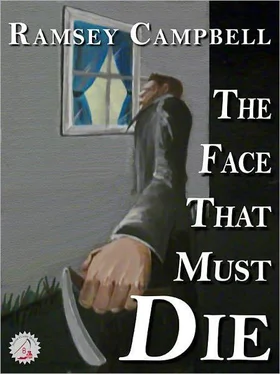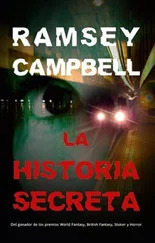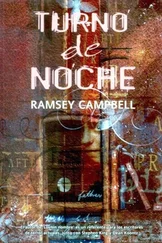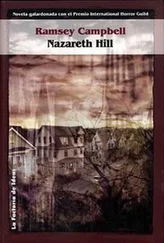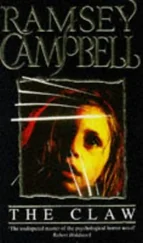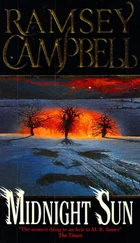Ramsey Campbell - The Face That Must Die
Здесь есть возможность читать онлайн «Ramsey Campbell - The Face That Must Die» весь текст электронной книги совершенно бесплатно (целиком полную версию без сокращений). В некоторых случаях можно слушать аудио, скачать через торрент в формате fb2 и присутствует краткое содержание. Жанр: Триллер, на английском языке. Описание произведения, (предисловие) а так же отзывы посетителей доступны на портале библиотеки ЛибКат.
- Название:The Face That Must Die
- Автор:
- Жанр:
- Год:неизвестен
- ISBN:нет данных
- Рейтинг книги:4 / 5. Голосов: 1
-
Избранное:Добавить в избранное
- Отзывы:
-
Ваша оценка:
- 80
- 1
- 2
- 3
- 4
- 5
The Face That Must Die: краткое содержание, описание и аннотация
Предлагаем к чтению аннотацию, описание, краткое содержание или предисловие (зависит от того, что написал сам автор книги «The Face That Must Die»). Если вы не нашли необходимую информацию о книге — напишите в комментариях, мы постараемся отыскать её.
The Face That Must Die — читать онлайн бесплатно полную книгу (весь текст) целиком
Ниже представлен текст книги, разбитый по страницам. Система сохранения места последней прочитанной страницы, позволяет с удобством читать онлайн бесплатно книгу «The Face That Must Die», без необходимости каждый раз заново искать на чём Вы остановились. Поставьте закладку, и сможете в любой момент перейти на страницу, на которой закончили чтение.
Интервал:
Закладка:
Horridge was struggling with his attacker in a cramped dark place. When he woke, his arms were tied. The indifferent ticking of the clock made him feel more alone and helpless as he writhed convulsively in the dark. Before he was free he realised he was only tangled in the blankets, but that lessened his fear not at all.
Sleep had deserted him. He lay trying to conquer his fears. He was going to do Craig’s work for him, was he? Was he going to terrify himself into waiting to be trapped by the police? Not bloody likely. He wasn’t an invalid, to lie awaiting the worst. For once he had the chance to achieve something. He’d see it through, whatever the consequences.
Wind hissed through the maze of concrete wastes of Cantril Farm. Again the sky resembled ice; it looked thin, treacherous. The bus took its time in arriving. Alighting at the corner of Shiel Road and West Derby Road, he called Craig’s number. There was no reply.
The second bus left him on Lodge Lane. Mightn’t Craig have come home by now? At last he found an undamaged phone. Still no reply. But by the time he reached the house – Suppose he went in and Craig returned while – He forced himself towards the park. His doubts dragged at him.
He was dawdling in the hope that something would hinder him. Nothing would, except himself – and he wouldn’t allow that. He walked past the house without detouring. That would show he meant business. He called a last time. No reply.
He walked between the stone gateposts, slowly in order to conceal his limp. There was no gate; grass sprouted above the hinge on the post, like unkempt hair behind a rusty ear. The short drive curved up to the front door, then down to another pair of empty posts. Within that semicircle, the lumpy ground was ragged with grass. The uneven hedge drooped over it, and leaned over the wall towards the pavement. The place seemed as neglected as Horridge’s old home.
He eased open the door to the porch, which was almost as roomy as his bathroom. Hiding within was a large empty cracked vase. The porch seemed dusty, desolate, which made him feel all the more an intruder. He wasn’t to be cowed. He crept in, and stood with a clang on the shoe-scraper. Wind slammed the porch door at once.
His heart’s jerk seized him. Never mind. No more distractions. He stared at the list beside the doorbells: Harty, a blank, Adamson, Craig – He thrust at the bell-push hastily, though his finger was shaking so much he feared he would miss. He heard the faint ringing. Good: if Craig were home, he would be able to hear the window without opening the porch door.
There was silence, except for the shuddering of the glass of the porch in the wind. Should he ring again, to make sure? Suppose that brought Craig out of hiding – to the door instead of to the window?
He was trying to distract himself. He must go straight in, up to the landing. Craig’s door would be on the right. To drop the photographs and push one partly beneath the door would take him only seconds. No more dawdling and cowardice! He thrust at the front door. He thrust harder, then he stared at it. It took him moments to see, and longer to accept, that the door was locked. Only the shadow of the porch made it seem ajar.
He managed not to pound on the door. “God. Oh dear God, please, no,” he moaned. He clamped his hands over his ears, digging his fingers into his scalp, trapping himself with the thumps of his blood – so that he failed to hear the porch door opening behind him.
“ If you want Roy Craig,” a voice said, “he’s out.”
It wasn’t Craig. It was a woman’s voice, though husky. She had trapped him in the porch, in the dim grubby box. His skin felt as though swarming with dust. All at once he glimpsed his dream vividly. He had been struggling in a wardrobe with an unseen enemy who was too strong for him. He found the razor in his pocket, and clutched it.
He couldn’t turn, for he would be unable to speak. His face was beyond his control. It had grown stiff as a mask, and he had no idea how it looked. His lips felt like thick bars, imprisoning his tongue. His hand trembled in his pocket. It at least could move.
“ Are you a friend of Roy Craig’s?” the voice said.
Chapter IX
It was the first week of Fanny’s exhibition. She’d managed to bear the first days. Apart from interviews with the media, from which she’d emerged edited and contradicting herself, she had felt ignored. She’d stood like a wallflower, overhearing comments on her work. “Isn’t that sweet?”
“ Very Lowryish, aren’t they?”
“ Don’t you feel these naives are a bit limited?”
“ Aren’t primitives a little out of date?”
Two days had been enough. She’d felt pent up, unemployed. She ought to work instead of mooching in the hope of overhearing compliments.
A new painting grew in her mind: visitors to an art gallery. She would rather paint them than watch them. How many had visited the exhibition because they felt that they ought to be seen doing so?
It distressed her to dislike people. All the more reason to stay home and paint: she could feel more affection and sympathy for her subjects that way – these subjects, anyway. The third day she began sketching; by the fourth, her ideas were too urgent to wait for more sketches. Figures gazed at paintings and tried to imitate their poses. Some of the gallery visitors had white sticks, and were being escorted. One long-haired man scratched his head and poked his fingers in his eyes.
Just as she was painting most intensely, Roy Craig came to unburden himself to her. What he had to say disturbed her – but she couldn’t stay depressed for long while she was painting. When he left, she painted on. Some of the faces gazing at the pictures were rapt, wistful or absolutely calm, with great wide eyes.
Then, buttocksbumanarse, she ran out of some of the colours – just because she was painting so well! She sketched for the rest of the evening, to make sure her ideas didn’t vanish and to prevent herself from brooding over Roy’s tale.
Next day she went downtown early, to the artists’ suppliers in Bold Street. Shops displayed hats like pale blue wicker baskets. A delicatessen boasted caviar. A woman gazed at an overfed leather suite and said to her husband “Looks terribly cheap, don’t you think?”
Fanny was glad not to be trying to appeal to them. They must be locked into their opinions, their conviction of what was Art and Good and Tasteful. Perhaps they might even spare time for Art which had Something to Say. She giggled at herself: she sounded like Winnie-the-Pooh with a headache.
The bus home dropped her by the tower block. She glanced along Lodge Lane, towards the terraced houses huddled together, their only front step the pavement. There was the audience she wanted to reach – the poorer people. They would criticise her work honestly. She could seldom distinguish the genuine opinions of the gallery visitors, if they had any.
She’d displayed her work in some of the community centres, in a fish and chip shop, in the Upper Parly Arts Centre. But nobody had ever asked the price, though she’d hoped people would be pleasantly surprised: she had wanted them to be able to buy. Were they content with their garish lustre pottery, their 3-D religious plaques that performed a little dance when you moved, their portrait of a woman with a blue-green face that sold at Boots the Chemists in its thousands? Wasn’t there any way she could reach them?
There was only one way to try, and that was to keep painting. Figures came alive in her mind. They grew closer, more economically depicted. She knew exactly what she would paint as soon as she reached home. She strode eagerly into the drive.
A man was poking at Roy’s bell. He stood, head cocked – like what sort of bird? Now he was vainly shoving the front door. Of course Roy was at work; the civil service’s Christmas holiday was over.
Читать дальшеИнтервал:
Закладка:
Похожие книги на «The Face That Must Die»
Представляем Вашему вниманию похожие книги на «The Face That Must Die» списком для выбора. Мы отобрали схожую по названию и смыслу литературу в надежде предоставить читателям больше вариантов отыскать новые, интересные, ещё непрочитанные произведения.
Обсуждение, отзывы о книге «The Face That Must Die» и просто собственные мнения читателей. Оставьте ваши комментарии, напишите, что Вы думаете о произведении, его смысле или главных героях. Укажите что конкретно понравилось, а что нет, и почему Вы так считаете.
